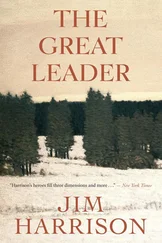Jim Harrison - Legends of the Fall
Здесь есть возможность читать онлайн «Jim Harrison - Legends of the Fall» весь текст электронной книги совершенно бесплатно (целиком полную версию без сокращений). В некоторых случаях можно слушать аудио, скачать через торрент в формате fb2 и присутствует краткое содержание. Жанр: Классическая проза, на английском языке. Описание произведения, (предисловие) а так же отзывы посетителей доступны на портале библиотеки ЛибКат.
- Название:Legends of the Fall
- Автор:
- Жанр:
- Год:неизвестен
- ISBN:нет данных
- Рейтинг книги:5 / 5. Голосов: 1
-
Избранное:Добавить в избранное
- Отзывы:
-
Ваша оценка:
- 100
- 1
- 2
- 3
- 4
- 5
Legends of the Fall: краткое содержание, описание и аннотация
Предлагаем к чтению аннотацию, описание, краткое содержание или предисловие (зависит от того, что написал сам автор книги «Legends of the Fall»). Если вы не нашли необходимую информацию о книге — напишите в комментариях, мы постараемся отыскать её.
Legends of the Fall — читать онлайн бесплатно полную книгу (весь текст) целиком
Ниже представлен текст книги, разбитый по страницам. Система сохранения места последней прочитанной страницы, позволяет с удобством читать онлайн бесплатно книгу «Legends of the Fall», без необходимости каждый раз заново искать на чём Вы остановились. Поставьте закладку, и сможете в любой момент перейти на страницу, на которой закончили чтение.
Интервал:
Закладка:
Ludlow lay under the comforter looking at the scrap-books of his life, his mind enlivened by a mild fever. He had reached the age where his habitually romantic frame of mind had turned to the ironies; the past had become a dense puddle out of which he could draw no conclusions. Though he was sixty-four his health and vigor had not diminished and his parents, both in their mid-eighties, were alive in Cornwall, which meant barring an accident, he was likely to live longer than he cared to. In his scrapbooks he read a sappy poem he had written in his Vera Cruz days and noted with amusement it was pasted next to a newspaper clipping about "The Fecundity of Codfish." As a mining engineer he had ranged from Maine, to Vera Cruz, to Tombstone in Arizona and Mariposa, California, to the copper country in Michigan's Upper Peninsula. He had not married until thirty-five and then the choice had been mutually unlikely—the daughter of a vastly wealthy investment banker from Massachusetts. And not that wealth was a part in this absurd nesting influence—he still drew some five hundred pounds a month from a Vera Cruz silver mine, nearly four thousand dollars in the exchange of the time. But it gathered in a bank in Helena where he traveled several times a year to look after his investments and carry on at the Cattleman's Club. His marriage had burned out, had gradually transmogrified from its previously Keatsian fire into a remote and cranky elegance. Their extended honeymoon voyage to Europe had civilized them to the point that he did not greatly care if she took a winter lover in Boston, usually far younger than herself. Her most recent discreetly scandalous affair would be a Harvard student, John Reed, who would become a famed Bolshevik and die in Moscow of typhus. Like many wealthy feminists of the time her interests were ardent and captious. After the first son had been properly named after the grandfather, the second caught the brunt of her few impulses, being named "Tristan," gleaned from medieval lore in her years at Wellesley. Somewhat typically she was the first woman to play polo with anything equal to the capabilities of those male horse sybarites who take the world as their stable. But she was a grand one, even in her fifties, a preposterous beauty with her once thin body verging on lushness. She had tried to make poor Samuel an artist but he owned his father's scientific bent and wandered around the ranch with his nature guidebooks studiously correcting their Victorian inaccuracies.
For the first time since the boys left Ludlow came down for dinner and noted with despair the single place set at the head of the dining room table, the coolness of which the roaring fireplace did not allay. Roscoe Decker, his foreman, sat drinking coffee with his wife, nicknamed Pet, a Cree noted for her beauty whom Ludlow's wife had taught to cook well over the past few years from an antique French cookbook known as the Ali Bab. Decker (for no one called him Roscoe, a name he disliked) was about forty with the slender legs of a horseman but with a bullish chest and arms, got from a youth full of digging fence-post holes.
Ludlow said he was lonely and wondered aloud if they all might eat together in the dining room. Pet poured him a cup of coffee and shook her head no. Decker looked away. Ludlow felt his face redden thinking he might have to order them to eat with him no matter the ten years they had spent in each other's distant good graces. So Ludlow and Decker drank their afternoon coffee under strain, disarming the odor of a Normandy venison stew Pet was cooking in cider in the wood range. Decker attempted to talk about the cattle but Ludlow stared into the distance unhearing in his anger. He watched Isabel, Decker's nine-year-old daughter, named after Ludlow's wife, make her way across the barnyard carrying something. She came through the pump shed and in the kitchen door and the something turned out to be a little badger a few weeks old that Tristan had given her. Pet told her to take the beast outside but Ludlow interrupted out of curiosity. The badger seemed ill and Ludlow said the milk must be warm and it might take meat ground into paste. Pet shrugged and began rolling biscuit dough while Ludlow warmed some milk and Decker examined the creature. They found a cache of old nursing bottles and nipples in the pantry and Isabel fed and rocked the badger which ate hungrily. Now Ludlow was happy and took out a bottle of Armagnac and poured himself and Decker glasses to add to their coffee. Isabel refused to go to school because of a certain half-breed onus, so Ludlow said he would finally undertake to tutor her starring the next morning at eight sharp.
The mood lightened so markedly that Ludlow went into the cellar for a good bottle of claret to go with the meal. For years he had been indifferent to his wife's taste for good wine, then having become a gradual convert, he read a vinology book and went on a binge to the point his cellar was chocked, partly from a derailed Northern Pacific bound for San Francisco that he cagily bought from a railroad official. And in the cellar he solved the problem; they would all eat in the kitchen including One Stab when he returned. That way he hoped that his sons' absence would not be so raw and glaring. He construed it back in the kitchen as a natural winter fuel measure. The dining room would be closed off. Decker's family would move to the guest room and the three ranch hands could have Decker's cabin. They all knew One Stab would not move from his hut which only he entered short of Isabel when she was sick at three and One Stab asked to perform some private ceremony. Ludlow knew, though, that One Stab owned a coup bag full of scalps, not a few Caucasian, but he privately approved.
After dinner they played pinochle all evening with Pet and Isabel winning owing to the wine and brandy Ludlow and Decker had consumed. Ludlow announced that Decker must take tomorrow off and they would take the setters and go grouse hunting. Decker said he expected that One Stab would be back in a few days. Pet served a pudding made from ripe plums from the orchard and Isabel fell asleep in her chair with the badger staring from his blanket on her lap. At midnight Ludlow went to bed with a warm steady feeling that the world indeed was a good place, that the war would be quickly over, and that he and Decker would have a good hunt the next day. He said his nightly prayers, adding for a change One Stab, who as a pagan was no doubt impervious to their influence.
At a little after three A.M. he awoke in a night sweat after a dream so crisply actual that he was still shuddering a half hour later. In his dream he had seen his sons die in a battle while he stood helplessly on the outcrop of a butte; then he had looked down and noted that he wore elkskin leggings, and was, in fact, One Stab. He wondered as he lit his pipe watching the shadows of the kerosene lamp flicker against the wall where he himself had been in the dream all the more poignant because in 1874 he had been encamped at Short-Pine Hills and One Stab had arrived and rather casually said that Sitting Bull with five thousand braves was coming south toward them from the Tongue River. So they rode hard day and night for three days to escape the trap with some men tying themselves to their saddles in exhaustion.
Ludlow drew his robe close and left his room, walking down the hall and peeking first into Alfred's room with all its sentimental bric-a-brac, dumbbells, self-help books, and then Samuel's, littered with microscopes, stuffed animals including a snarling wolverine, botanical specimens, a piece of driftwood drawn from the river in his youth that owned a startling resemblance to a hawk. Tristan's room which Ludlow had not entered in recent memory was stark and bare; a mule deer skin on the floor, a badger skin covering the pillow on the bed, and a small trunk in the corner. Ludlow grimaced, knowing the skin on the pillow was from Tristan's pet when he was ten years old that Ludlow had shot after it had killed his wife's lapdog and she had gone into hysterics. Normally a most truculent animal, Tristan's pet would ride horseback with him, perched rotundly across the pommel of the saddle and hissing gutturally at anyone who came near except One Stab. Ludlow stooped holding the lantern over the trunk. He felt a bit like an old snoop but could not resist his curiosity. Inside the trunk the lamplight caught the glitter from the sterling rowels of a pair of Spanish spurs Ludlow had given Tristan on his twelfth birthday. There were some cartridges for a Sharps buffalo rifle, a rusty handgun of unknown origin, a jar of flint arrowheads, and a bear claw necklace, no doubt a gift from One Stab whom Ludlow often felt was more the boy's father than he himself.
Читать дальшеИнтервал:
Закладка:
Похожие книги на «Legends of the Fall»
Представляем Вашему вниманию похожие книги на «Legends of the Fall» списком для выбора. Мы отобрали схожую по названию и смыслу литературу в надежде предоставить читателям больше вариантов отыскать новые, интересные, ещё непрочитанные произведения.
Обсуждение, отзывы о книге «Legends of the Fall» и просто собственные мнения читателей. Оставьте ваши комментарии, напишите, что Вы думаете о произведении, его смысле или главных героях. Укажите что конкретно понравилось, а что нет, и почему Вы так считаете.











